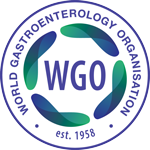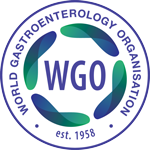Tryptophan metabolites produced by the gut microbiome protect against enteric pathogens
Review by Prof. Zikai Wang (China)
Study Summary
One function of the gut microbiome is providing colonization resistance to protect the host against enteric pathogens, but this phenomenon remains poorly understood. This study delineates a noncanonical colonization resistance pathway against attaching and effacing (AE) pathogens. In this study, bacterial tryptophan metabolites like IEt, IPyA, and I3A can protect mice against Citrobacter rodentium infection, by activation of the host neurotransmitter dopamine receptor D2 (DRD2) within the intestinal epithelium. Mechanistically, DRD2 activation promotes the degradation of N-WASP (a key protein driving actin polymerization) by activating the Gβγ-PLC-PKcθ signaling pathway, thereby reducing the formation of actin plinth required by pathogens adhering to IEC. This study revealed an unconventional role for DRD2 outside the nervous system and suggested that dietary or pharmaceutical interventions targeting DRD2 may prevent and treat intestinal pathogen infection.
Commentary
In previous studies, the central role of tryptophan metabolism in the gut was thought to be mediated through three metabolic pathways involved microbiota-host crosstalk, serotonin (5-hydroxytryptamine), kynurenine (Kyn), and indole derivatives. Tryptophan metabolites mainly function as ligands for aromatic hydrocarbon receptors (AHR). This research revealed a previously unknown role for a dopamine receptor DRD2 (Dopamine Receptor D2) in the gut, which was previously known as a neurotransmitter in the central and peripheral nervous systems. In this study, researchers confirmed that tryptophan and its three metabolites protect mice against infection from certain pathogenic E.coli, depending on binding to the DRD2receptor in gut epithelial cells to trigger the Gβγ-PLC-PKcθ signaling pathway which ultimately reduces the production of actin plinth required by E.coli. This research provides a new avenue for the treatment of gastrointestinal infections.
Citation
Scott SA, Fu J, Chang PV. Dopamine receptor D2 confers colonization resistance via microbial metabolites. Nature. 2024;628:180-185. doi: 10.1038/s41586-024-07179-5. PMID: 38480886.
View past News You Can Use commentaries

